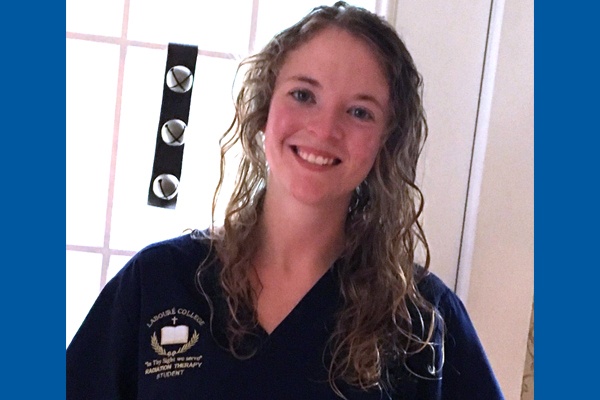Do you have a head for business concepts and a heart for helping people?
Have you always wanted to work in healthcare, but aren’t sure that direct patient care is the right path for you?
If so, healthcare administration might just be the career you’re looking for.
Healthcare administrators are business people who manage daily operations to keep healthcare facilities running smoothly.
Healthcare administrators wear many hats. They manage people, budgets, services, programs, and relationships.
While healthcare administrators may not participate in direct patient care, they are responsible for making sure that everyone, from management to techs, has what they need to do their job and provide quality patient care.
Let’s take a deep dive into who healthcare administrators are, what they do, where they work, and how you can become a member of this valued profession.
Who are healthcare administrators?
Healthcare administrators are leaders in the healthcare field who know how facilities operate and the best way to deliver quality healthcare services.
Healthcare administrators are employees of healthcare facilities and agencies. They use their knowledge of business and healthcare services to help staff provide high-quality patient care.
Healthcare administrators typically have at least an associate’s degree, but many hold bachelor’s, master’s, or even doctorate degrees.
What do healthcare administrators do?
Healthcare administration employees serve patients by managing and improving healthcare systems.
At the facility level, employees of healthcare administration departments work with other administrators and staff to deliver the highest quality patient care services while staying within a budget. They do this by managing the daily operations of the facility, including:
- Hiring staff
- Training staff
- Allocating resources
- Managing patient information
- Developing and maintaining relationships with other leaders and staff
- Ensuring that the facility is in compliance with state and federal regulations
Some healthcare administrators work with other healthcare leaders to update and change policies, helping facilities improve the quality of their healthcare services.
For example, healthcare administrators may be employed by government agencies to help change Medicare policies that affect facilities that provide care to Medicare beneficiaries.
Where do healthcare administrators work?
Healthcare administrators work in healthcare facilities and with public and private agencies, both small and large, including:
- Hospitals
- Skilled nursing facilities
- Long-term care facilities
- Mental health centers
- Outpatient care centers
- Medical offices
- Rehabilitation centers
- Urgent care centers
- Government health agencies
- Medical schools
- Nursing schools
As part of government healthcare administration departments, administrators may apply their knowledge and experience to improving Medicare or Medicaid services. Or they may be employed by other national healthcare agencies, such as the U.S. Food and Drug Administration (FDA) or the Red Cross.
Healthcare administrators typically work day shifts so that they can collaborate with other managers.
What career opportunities are open to healthcare administrators?
Any facility or agency that provides care or services to patients or develops health policies has a healthcare administration department. You’ll see a variety of job titles ranging from entry-level operations assistant to hospital CEO.
Some common job titles include:
- Hospital administrator
- Practice administrator
- Licensed nursing home administrator
- Director of operations
- Hospital CFO
- Administrative coordinator
- Hospital executive
The need for long-term care healthcare administrators
One of the fastest-growing career opportunities for healthcare administrators is in long-term care.
In 1920, only 1 in 20 people were at least aged 65. In 2020, that number had grown to 1 in 6. This population is expected to grow from 58 million as of 2022 to 82 million by 2050, increasing the demand for long-term care facilities and services.
Healthcare administrators play an important role in ensuring that long-term care facilities and nursing homes provide quality patient care to our growing aging population.
How do healthcare administrators impact patient outcomes?
Let’s look at how a healthcare administrator can impact patient outcomes and satisfaction.
When a healthcare administrator makes decisions regarding staffing, staff benefits, healthcare supplies, staff training, the electronic health record system, or which new procedure to bring on board, these decisions impact the quality of patient care.
The quality of patient care impacts patient outcomes and patient satisfaction.
Healthcare administrators are concerned with anything that impacts patient outcomes and patient satisfaction, including quality staffing, staff job satisfaction, the supplies that are available to staff and patients, efficiency of patient care, and patient safety.
Administrators are responsible for staff and patient safety by making sure each hospital area has enough staff and the right kind of staff. To accomplish this, healthcare administrators continuously monitor hospital admission trends. Trends are impacted by many factors, including community disease rates (flu, COVID, respiratory syncytial virus) and natural disasters (floods, major storms).
Healthcare administrators develop and monitor budgets to ensure that staff have the money for the supplies needed to provide safe patient care.
Healthcare administrators develop relationships with staff, and will even visit patients and family members to learn how well policies and procedures are working and determine if changes are needed.
Healthcare administrators are responsible for making sure that their facility meets all state and federal regulations, such as Medicare and FDA regulations. These regulations are developed to ensure that facilities provide safe patient care.
As you can see, the decisions made by healthcare administrators have a direct impact on patient outcomes, even though they don’t provide direct patient care.
What is the difference between healthcare management and healthcare administration?
You may see the term ‘healthcare management’ when researching healthcare administration, but the job of a healthcare manager is different from that of a healthcare administrator.
Healthcare management oversees the business operations of a facility. Managers make sure the facility operates within a budget and all physical buildings are properly maintained.
Healthcare management doesn’t hire, train, or manage staff. Healthcare management can impact how well the facility operates but does not have a direct impact on the quality of patient care.
Healthcare administrators, on the other hand, are responsible for the day-to-day operations of a facility. They manage staffing and may train new staff members.
Administrators with healthcare informatics training develop and maintain the medical charting system, ensuring that patient information is secure but also accessible to providers.
Healthcare administrators may help manage the budgets of individual departments. They may even help determine what services or procedures are offered to patients.
For example, a facility’s hospital administrators may determine that they have enough trained staff, the required policies and certifications, and the appropriate facilities to begin performing heart transplants.
What is the salary for a healthcare administrator?
According to the U.S. Bureau of Labor Statistics, medical and health services managers can earn an average of $104,830 per year. And employment of health services managers is expected to grow 28% by the year 2032.
What kind of education do healthcare administrators need?
You’ll need at least an associate degree to get your foot in the door, but many jobs require a bachelor’s or master’s degree. If you’ve already earned a related degree, such as in nursing or pre-med, you may be eligible to enroll in a bachelor’s or master’s program in healthcare administration.
Labouré College of Healthcare offers a bachelor of science in healthcare administration. If you’ve already taken some college-level courses in a related field, you may be able to transfer those credits to Labouré’s program. With 60 transfer credits, Labouré’s program can be completed in 2 years or less.
Or work with Labouré’s admissions team to create an education plan that can get you the credits you need to enroll in the bachelor’s degree program.
At Labouré, you’ll have the opportunity to select a range of elective courses that focus on global health and health disparities, community and behavioral health, nutrition, and complementary alternative medicine.
Or you may decide to select electives in long-term care or elder care. You can select a variety of courses that cover the domains required to qualify for post-graduate credentialing exams.
Are you motivated to rise to the top?
After earning a bachelor’s degree in healthcare administration, consider taking your education to the master’s level. A master’s degree in healthcare or business administration can open the door to a higher-level position, such as hospital CEO.
If you’re interested in learning how to get started in the field of healthcare administration, contact Labouré College of Healthcare today!




Comments